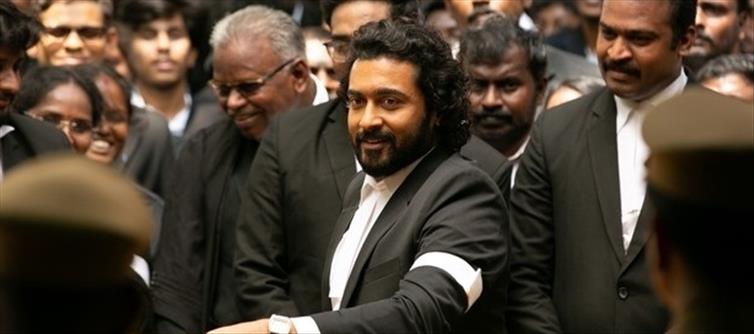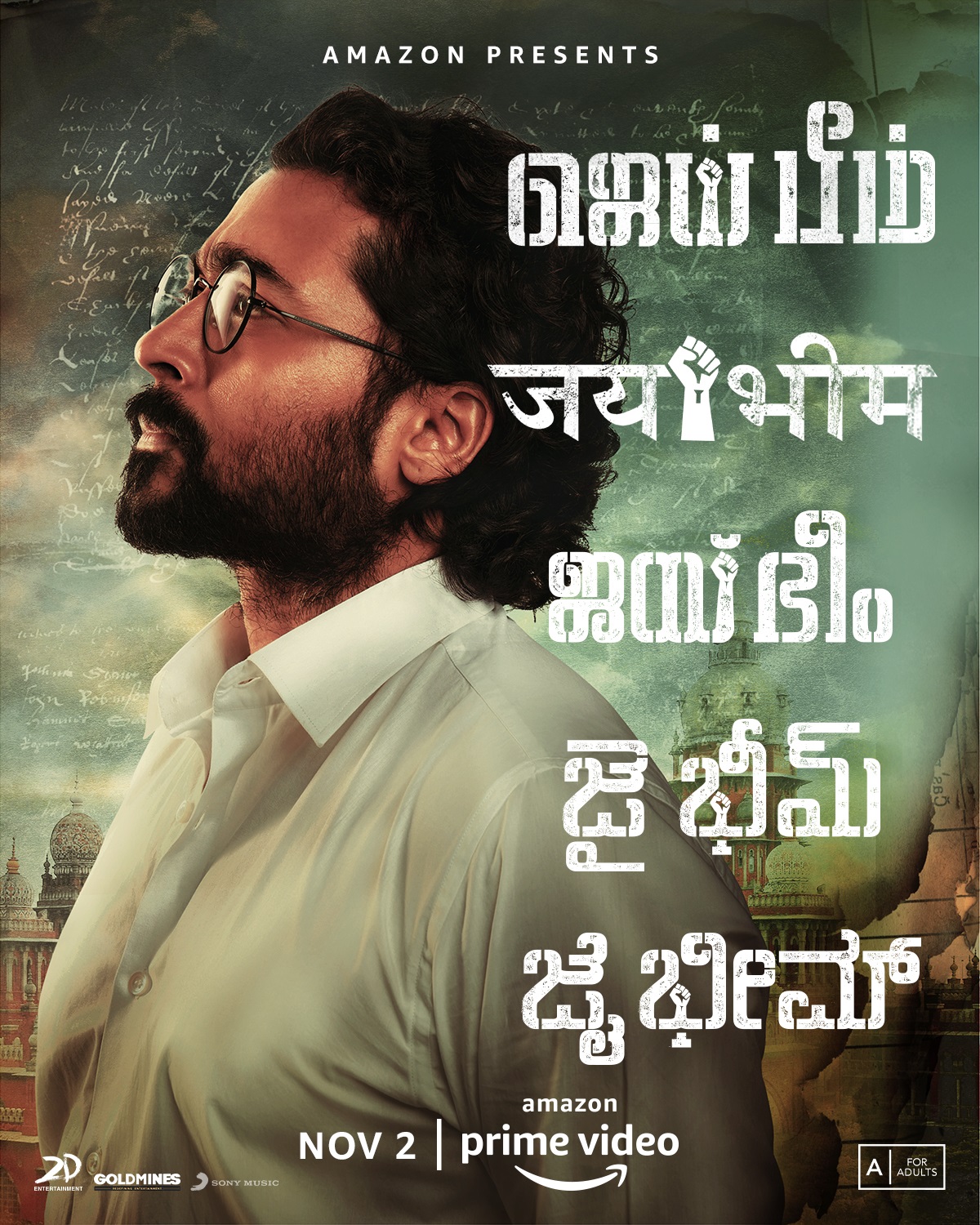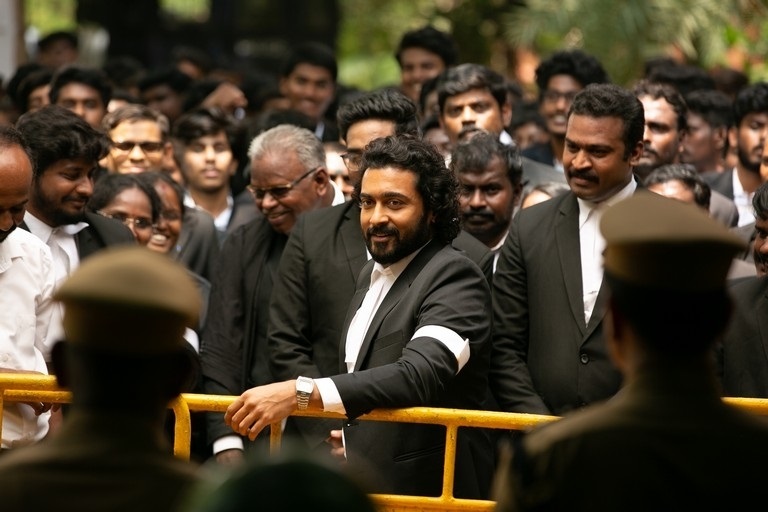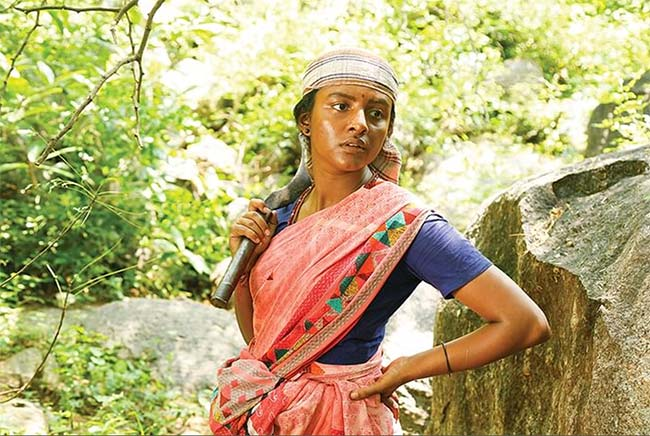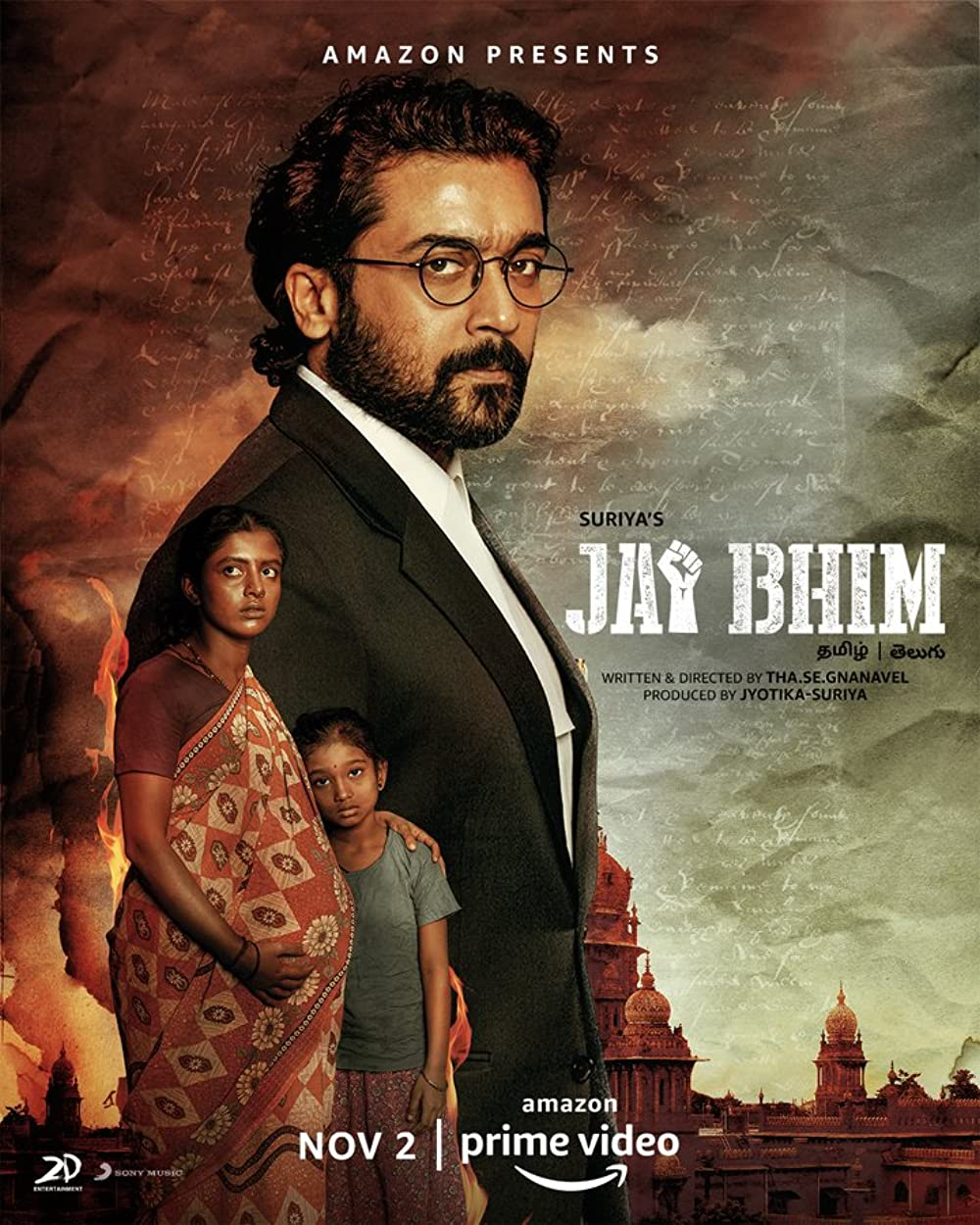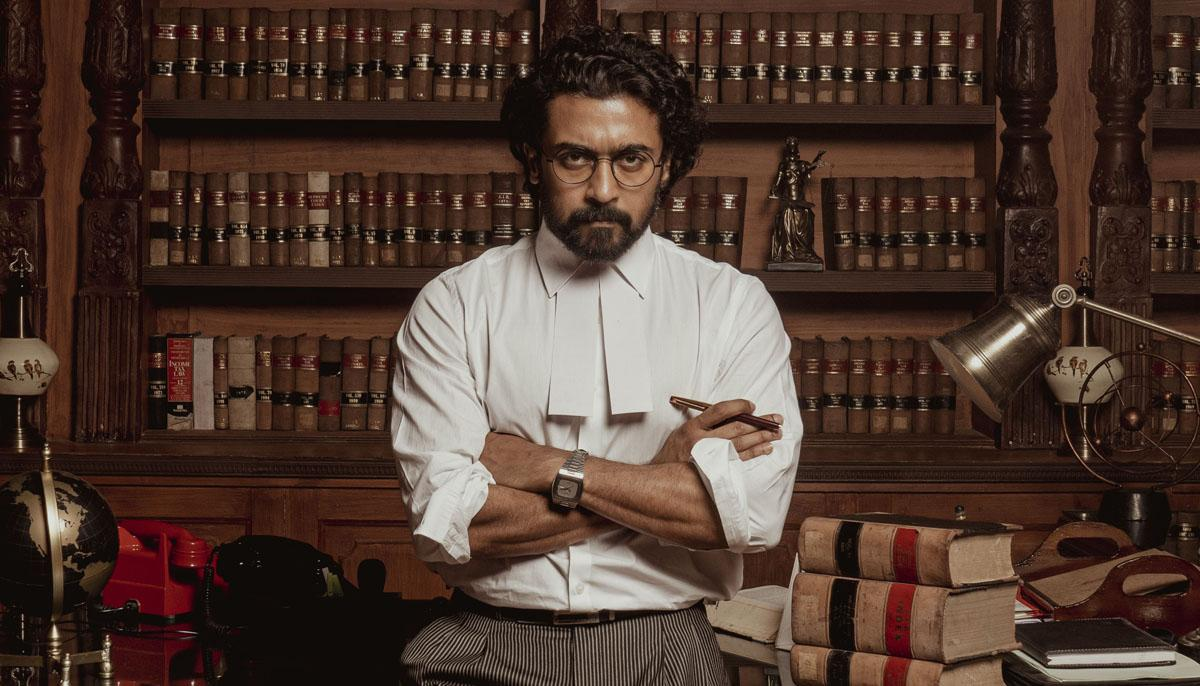Pushpa Telugu Movie Review, Rating
పుష్ప తెలుగు సినిమా రివ్యూ ,రేటింగ్
-
EPS Says 450 Units Free for Weavers The Brutal Math Shows It’ll Swallow Tamil Nadu Alive
-
Kerala High Court Just HUMILIATED CBFC Live: 'Your Movie Calls Kerala Communal – But We Live in TOTAL Harmony!' The Kerala Story 2 Is TOAST
-
Union Cabinet Finally Says YES to Renaming Kerala to Keralam – But Why Did It Take So Damn Long?
-
Zero. None. Not a Single One. Yet They Still Called It 'The Kerala Story' — BJP’s Propaganda Movie Just Got Brutally Exposed
-
Why Coca-Cola Oreos Hit Like a Cigarette — The Dark Science Behind Ultra-Processed Food
-
Hindus Formed a Human Chain to PROTECT Muslims Praying Then BJP Youth Wing Showed Up With Hanuman Chalisa
-
BJP Education Minister Begs 'Speak Hindi' Brave Schoolgirl Fires Back: 'Sir, YOU'RE the Education Minister!'
-
Old Enough to Be Her Father But He Still Stared While They Forced Her Into a Black Net Top? Ayesha Khan Exposed Bollywood’s Creepiest Secret
-
She Had the ENTIRE Internet Simping During IND vs PAK But She’s Not Even a Real Girl - 345K Followers Fooled
-
Priyanka Mohan’s Made in Korea Gets Netflix Release Date—March 12 Premiere Confirmed
-
Chennai Suburban Train Services Cancelled: DMK MP Kanimozhi Voices Public Frustration
-
Beth Mooney’s Blazing Knock Powers Australia to Dominant Win Over India Women
-
When Will Rajini 173 Shooting Begin? Latest Update on Superstar Rajinikanth’s Next Film
-
Amitabh Bachchan and Kamal Haasan Join Kalki 2 Shooting
-
“I Have Proven That I Am M.R. Radha’s Daughter"—Radhika Sarathkumar Speaks About Her Father’s Legacy
-
SpiceJet Flight Makes Emergency Landing in Delhi After Engine Malfunction
-
Palm Fruit (Ice Apple) Kheer Recipe
-
Cow Milk vs Buffalo Milk: Does It Really Affect Your Child’s Brain?
-
“They Only Want to Work with Young Boys”: Anil Kapoor on Heroines
-
Kantara Mimicry Row: Karnataka HC Grants Interim Relief to Ranveer Singh ..?
-
Celebrating 61 Years of Cinematic Grandeur ..!?
-
Bhooth Bangla Teased by Akshay & Ektaa; April 10 Release Confirmed ..!
-
Weight Gain After Workout: Why the Scale Is Increasing?
-
Akshay Kumar’s Bhooth Bangla First Look Out ..!
-
Bloody Romeo: The maker's announced the title on Nani's birthday ..?!
-
Sridevi: Death Anniversary – What Really Happened?
-
Kareena Kapoor on Fasting After Marriage ..?
-
CBFC Orders Multiple Cuts in The Kerala Story 2 ..?
-
Aditya Pancholi Seeks FIR Quashing; High Court Sends Fresh Notice ..?
-
Delhi Police Acts on AI Summit Violence ..
-
Congress Govt’s Telangana Budget 2026 to Be Presented on Feb 28 ..?
-
Major Accident Averted at Delhi Airport: SpiceJet Flight Makes Emergency Landing
-
Border 2 – Box Office Report
-
Assi’ vs ‘Do Deewane Seher’: Monday Performance Update
-
Mrunal Thakur Opens Up on Body Shaming Struggles ..?
-
Rashmika–Vijay Wedding Live Updates ..!
-
Rashmika Mandanna & Vijay Deverakonda: Family Details Revealed ..?!
-
Samantha Calls Raj Her ‘Healing’ — But Forgets She Destroyed His Ex-Wife & Kids’ Happiness First
-
Pooja Hegde Serves Silent Killer Vibes at the Airport – Black Coat, Red Earrings & Zero F*cks Given
-
Prime Minister Narendra Modi Praises Jayalalithaa as an Outstanding Administrator
-
Significant Progress of Adi Dravidar and Tribal Communities Under the Dravidian Model Government
-
Deputy Chief Minister Udhayanidhi Stalin Inaugurates Badminton Stadium in Triplicane, Chennai
-
BJP Humiliates Vijay as Trisha’s Home-Wrecker, Bans Film — Thalapathy’s Spine Vanishes, Stalin Gets the Daily Verbal Thrashing
-
Karur Stampede Exposed the Real Vijay: Ran Away, Politicised Death, Faked Emotions — The Most Toxic Actor in Politics
-
Cinema Fans vs Real Politics: Vijay Just Learned the Difference the Hard Way – And It Hurts
-
One Rule for Yogi’s UP, Another for Stalin’s TN — BJP Blocking TN’s Growth While Wasting Taxpayer Money on Empty UP Runways
-
Brain-Dead Pawan Kalyan Fans Turn Chicago Theater Into a Garbage Dump — And Then Cry ‘Hate’ When America Wants Them Out
-
91-Year-Old MMS Came to Rajya Sabha in a Wheelchair — While Our Current PM Hides Behind the Speaker to Skip a Simple Speech
-
A Gate in Bhagat Singh’s Name, But Not a Single Bhagat Singh in Sight — Modi's India For You
-
Women Only Means Women Only — The Casual Disrespect We’ve Normalized
-
Cabinet Approves New Industrial Investments with ₹5,000 Concession
-
New Moto Smartphone Teaser Revealed with 7,000mAh Battery
-
Skoda Kushaq Facelift Ready for Launch
-
“We Haven’t Started Schemes for Elections”: Chief Minister M.K. Stalin in Kolathur
-
The Ultimate Hypocrite’s Birthday: Jayalalithaa — Feminist by Day, Female Fascist by Night, Fraud Till Death
-
Is This the Beginning of the End for Diabetes? China’s Stem Cell Breakthrough Shocks the Medical World
-
“The Party’s Women’s Wing Has Taken the Field Across the State”: Chief Minister M.K. Stalin
-
Sudhev Nair Plays “Karmady” in Toxic; Exciting Update Released
-
“The Dravidian Model’s Silent Surgical Strike Has Disturbed Your Sleep”: Chief Minister M.K. Stalin
-
Continuous Updates on Toxic Film Release
-
Jai Hanuman Launched with Pooja in Hanuman’s Birthplace
-
“Educating a Woman Uplifts Five Generations”: Chief Minister M.K. Stalin
-
Chief Minister Inaugurates New Buildings Worth ₹31.45 Crore at Arulmigu Kapaleeswarar Arts and Science College
-
Yogi Babu Makes Telugu Debut for Venkatesh’s Film
-
Cancer Types in India: These 5 Cancers Are Spreading Rapidly
-
Chief Minister to Attend Event: Two-Day Drone Ban Imposed in Kanyakumari
-
Vijay Sethupathi and Sai Pallavi Join Mani Ratnam’s Next Film
-
From Grade 2 Fatty Liver to Almost Normal in 6 Months – Without Medication
-
YOU’RE EATING INDIAN SNICKERS TRASH – UK Version Is Basically a Healthier Bar. Why Are We Paying for Poison?
-
EAT DUNG OR EAT BEEF? Minister's Savage Jab Ignites Total War Over 'Kerala Story' Sequel's Forced Beef Scene
-
How BJP Ruined India While Their Families Breathe Clean Air Abroad - Contaminated Everything, Falling Highway, Toxic Rivers
-
S.J. Surya Praises Director Nelson at KHxRK Reunion
-
Pooja Hegde's Cozy Bar Meet-Up with Mystery Man Sparks Buzz – Who's the Beaming Guy
-
Trailer of Thaai Kizhavi Released; Film to Hit Theatres on 27th
-
Trump's Desperate Roar: Higher Tariffs for 'Game Players' After Court Crush – Does 'Vishwaguru' Modi Have the Guts?
-
Pooja Hegde's Teasing Return: Effortless Glam, Killer Smile & That 'Homemeee Bound' Energy!
-
BAFTA Bombshell: Lakshmipriya Devi's Emotional Speech Calls Out Manipur's Plight – Will Delhi Finally Listen?
-
Bengaluru - Instagram Trap Leads to Brutal Gang-Rape - 19-YO Victim Breaks Silence
-
Dhruv Rathee Savagely Roasts Elon Musk, But Ends Up Torching His Own Cred – Podcast Blunder Goes Nuclear!
-
Exposed and Shattered: Sadhguru's Isha Foundation Gets Slapped Down in Court – Is This the End of the Spiritual Scam?
-
Ambani's Ruthless Thirst for Control – Privatizing India's Lifeline with Foreign Invaders Like Veolia! Will Your Tap Run Dry in This Savage NWO Plot?
-
Shame on You, Vijay: Brutal TVK Tyrant Labels Karur Massacre 'Political Vendetta' – Inhuman Coward Hides Behind Dead Bodies
-
Japan's Savage Snitch Scheme: Bounty Hunters Wanted – Up to 50K Yen to Rat Out Illegal Foreign Workers!
-
Tax Heist Exposed: How Adani, Kohli, Dhoni, and Bollywood Royals Slash Taxes to Zero While You Bleed 30%
-
Adani's Ruthless Empire: How Modi's Crony Billionaire is Swallowing India's Lifelines – Ports, Airports, and Your Future !?!
Empowering 140+ Indians within and abroad with entertainment, infotainment, credible, independent, issue based journalism oriented latest updates on politics, movies.
India Herald Group of Publishers P LIMITED is MediaTech division of prestigious Kotii Group of Technological Ventures R&D P LIMITED, Which is core purposed to be empowering 760+ crore people across 230+ countries of this wonderful world.
India Herald Group of Publishers P LIMITED is New Generation Online Media Group, which brings wealthy knowledge of information from PRINT media and Candid yet Fluid presentation from electronic media together into digital media space for our users.
With the help of dedicated journalists team of about 450+ years experience; India Herald Group of Publishers Private LIMITED is the first and only true digital online publishing media groups to have such a dedicated team. Dream of empowering over 1300 million Indians across the world to stay connected with their mother land [from Web, Phone, Tablet and other Smart devices] multiplies India Herald Group of Publishers Private LIMITED team energy to bring the best into all our media initiatives such as https://www.indiaherald.com
